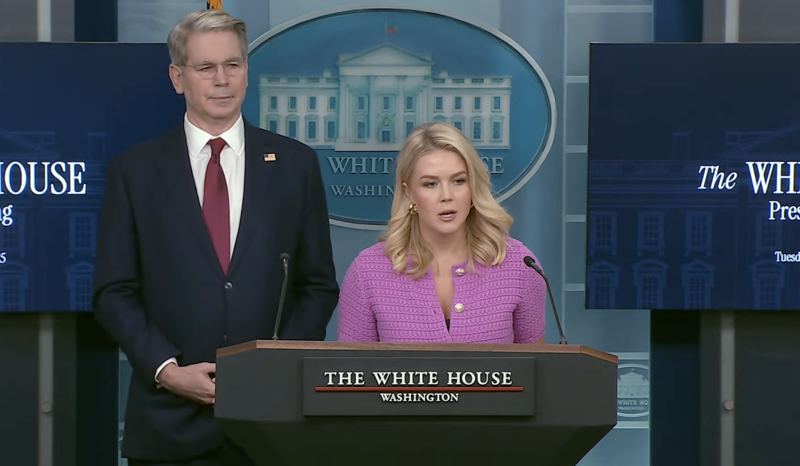The White House on Tuesday criticized a reported decision by retail giant Amazon to display how much of an item’s cost is from tariffs.
“This is a hostile and political act by Amazon,” White House Press Secretary Karoline Leavitt said. “Why didn’t Amazon do this when the Biden administration hiked inflation to the highest level in 40 years?”
When asked if Amazon’s policy showed that it is Americans who will shoulder the costs of tariffs as opposed to foreign nations such as China, Leavitt didn’t answer the question. Instead, she said it was another reason to buy American-made products.
“It’s another reason why we are on-shoring critical supply chains here at home to shore up our own critical supply chains and boost our own manufacturing,” she said.
Amazon will soon show how much Trump’s tariffs are adding to the price of each product, Punchbowl News reported Tuesday. The Amazon site will display how much of an item’s cost is from tariffs next to the product’s total listed price, according to the report, which cited an unnamed person familiar with the plan.
Amazon didn’t immediately respond to questions about the tariff cost display or the response from the White House.
Trump announced a slate of tariffs on April 2, which he called “Liberation Day” for American trade. Seven days later, on April 9, he paused nearly all of those higher rates that Trump calls reciprocal. Trump said the pause would last 90 days as his trade team talks with more than 75 other nations. However, Trump maintained a 10% baseline tariff and a 145% import duty on goods from China.
Economists, businesses, and a growing number of publicly traded companies have warned that tariffs could push up prices on a large swath of consumer products.
Trump has said he wants to use tariffs to bring back manufacturing jobs lost to lower-wage countries in decades past, shift the tax burden away from U.S. families, and pay down national debt.
A tariff is a tax on imported goods. The importer pays the tax and can either absorb the loss or pass the cost on to consumers through higher prices.







